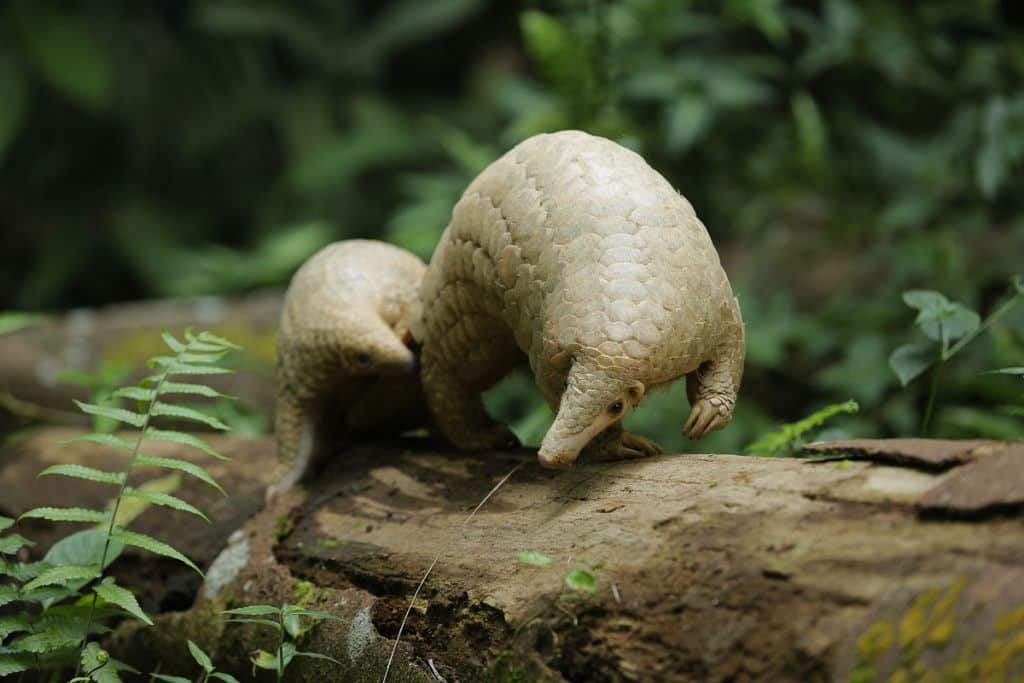To all wildlife supporters:
WCN, first and foremost, is a community. As a network, relationships are at the very heart of what we do. In these difficult times we want you to know that we are thinking about you, our WCN community, and wishing you and your families all the best.
The COVID-19 pandemic affects all of us, and while we turn to global health experts for guidance, we are keenly aware that staying engaged with one another is all the more important in this new period of “social distancing”. We wanted to connect with our own community to talk about the relationship this pandemic has to the very passion that bonds us: wildlife. We also want to share with you the actions that WCN is taking in light of this global crisis.
We know that COVID-19 jumped to humans from a wild animal. Some researchers believe that pangolins were likely the vector; that the virus originated in bats, transferred to pangolins, and then transferred to people via a wildlife wet market (markets where live animals are purchased and slaughtered in the same place) in Wuhan, China. To learn more about this, we encourage you to watch this video put out by Vox about the origins of the coronavirus.
This is not the first virus to infect people through wildlife consumption—SARS and MERS were transmitted in the same way—but we are hoping it is the last. So, while we celebrate China and Vietnam, two of the largest consumers of wildlife, for their conscientious decisions to close down their wildlife markets, we urge them to make that decision permanent.
It has never been more clear that the consumption of wildlife body parts and products is dangerous to public health and the global economy. Fortunately, we can drastically reduce, if not eliminate, the likelihood of future pandemics like COVID-19. To do so, we must stop the illegal trade in wildlife and wildlife consumption…for good.
This is why we are taking immediate action that will have long-term impact. WCN is investing $1 million dollars through the Pangolin Crisis Fund specifically to tackle wildlife consumption and trade in response to the coronavirus outbreak. This investment is thanks to a forward-thinking donor who seized the opportunity to address this urgent issue. WCN has partnered with WildAid to use that million dollars to produce multi-faceted campaigns aimed at reducing wildlife consumption in Asia—the region where this consumption is highest. The campaigns will reduce demand for wildlife, build public support for the closure of wildlife markets and restaurants, and support permanent government bans on wildlife trade. We will be sharing more details about this project on pangolincrisisfund.org.
Additionally, all of our Conservation Partners and Crisis and Recovery Fund grantees, are continuing to protect wildlife and wild places around the world. As more and more habitat is removed and wildlife have fewer places to live, areas where people and wildlife overlap will become more common and the possibility of disease transference can escalate. This is one of many reasons our Conservation Partners are working to protect landscapes and wild spaces, to limit wildlife and people encroaching on each other’s space.
We are proud of the work that our Crisis and Recovery Funds and Conservation Partners are doing to protect wildlife around the world. Many of the conservationists we support risk their lives every day, especially with respect to the highly dangerous criminal world of wildlife poaching and trafficking. They do so because of their belief that without wildlife there is no planet, there is no us. We hope you will continue supporting these brave women and men as they help us fulfill our mission of protecting endangered wildlife—a mission that has never been more relevant or more urgent.
You can hear from these conservationists directly at our first ever Virtual Spring Expo on April 25th where you can ask them questions about their work—details will be found at wildnet.org/events—we hope you will join us. You can also stay connected with us via our website and social media channels as we continue to speak to this issue. Please don’t hesitate to reach out to us with questions and to get involved in conservation.
The days and weeks ahead will be challenging, but we can continue to share a message of hope and resilience, we can support each other and spread goodwill through our communities, and we can turn our attention to impactful programs that are working to end the wildlife trade.
We wish all of you the best of health and well-being, and thank you for caring about wildlife and people around the world.
With gratitude,
The WCN staff


